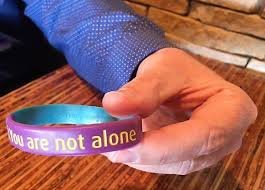Mental Health and Emergency Medical Experts Encourage Support for Clinicians Health During Pandemic

WASHINGTON: In a joint statement, emergency medicine and other leading medical associations, academics and psychiatry experts outline steps to support the mental health of emergency physicians and other health professionals currently risking their lives to treat patients during this pandemic.
"A physician's choice to address his or her mental health should be encouraged, not penalized," said William Jaquis, MD, FACEP, president of the American College of Emergency Physicians (ACEP). "Efforts to preserve and protect the mental health of emergency care teams should be prioritized now and in the aftermath of this pandemic."
Optimal physical and mental health of physicians and other medical clinicians is conducive to the optimal health and safety of patients, the joint statement reads. Physicians and other health care professionals should feel comfortable seeking treatment for psychiatric symptoms, just as anyone else should. A health professionals' history of mental illness or substance use disorder (SUD) treatment should not be used as an indicator of their current or future ability to competently practice medicine.
These leading medical groups believe that credentialing entities should refrain both from discouraging physicians from seeking professional help and from dissuading physicians from joining peer support groups. There should be no reprisals for a physician who engages in such therapeutic endeavors.
According to the statement, "For most physicians and clinicians, seeking treatment for mental health triggers legitimate fear of resultant loss of licensure, loss of income or other career setbacks. Such fears are known to deter physicians from accessing necessary mental health care. Seeking care should be strongly encouraged, not penalized."
"As important as providing personal protective equipment is the need to ensure the mental health of our frontline clinicians is attended to during the COVID-19 pandemic," said American Psychiatric Association President Jeffrey Geller, MD, MPH. "Each health care professional should seek help if needed without hesitation, and should be helped to do so by a colleague if such assistance is necessary."















































